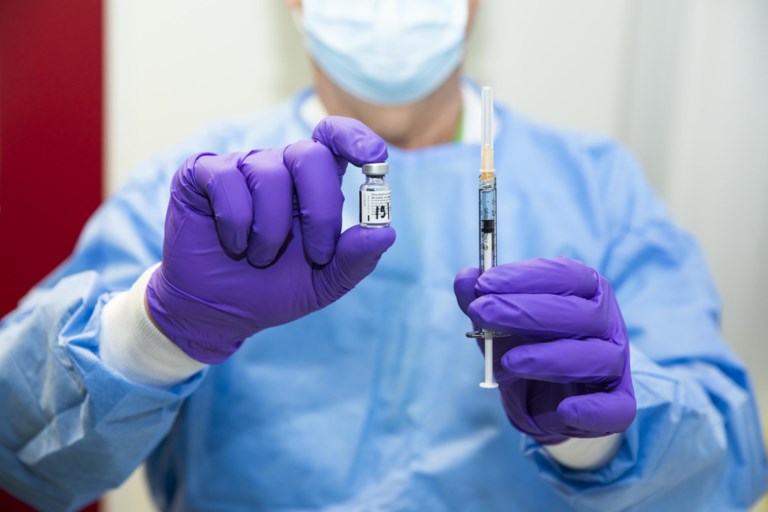As Belgium pushes forward with its campaign for booster coronavirus vaccinations, several experts have agreed that at least one more shot will be needed after everyone has received a booster dose; others think it might be too soon to say.
A fourth vaccination will be needed because the third one has not yet been specifically adapted to the Omicron variant, biostatistician Geert Molenberghs and virologist Johan Neyts said in the Flemish Parliament on Wednesday.
"There can and will be a fourth dose," Molenberghs said, adding that different adaptations to other variants will likely still be needed.
However, it might be too early to start speaking about fourth and even fifth doses, virologist Steven Van Gucht told The Brussels Times. "It is very likely that we will need repeat vaccinations at some point in the future. The only thing we do not know yet is how often."
Related News
- First batch of Covid-19 vaccines for children arrives in Belgium
- Netherlands to give entire population booster shot after just three months
- Johnson & Johnson vaccine can be used for booster shots
Van Gucht referred to the flu vaccine, which is administered yearly but only for those at a high risk of getting severely ill from the virus.
"Like for flu, I suspect that we will draw up a schedule for people at increased risk who will have to get another Covid-19 shot at regular intervals," he added. But it is too early to say whether that will be every year or even every two years.
What is important now is that everyone who is eligible for a booster dose gets one as soon as possible, emphasised Van Gucht. "But we need to respect the interval, which is important for an optimal immune response."
Boosting the immune response
Studies show that after the third dose of the current vaccine immunity increases considerably. This is also effective against the Omicron variant, Van Gucht pointed out. "I think we now need to move a bit faster with the third dose because we are still in the middle of the pandemic."
Late on Wednesday evening, Belgium's different health ministers will meet to discuss shortening the interval between the initial Pfizer or Moderna vaccinations, a spokesperson for the Vaccination Taskforce confirmed to The Brussels Times. This interval is currently six months but could be reduced to five.
In the Flemish Parliament, however, Molenberghs stressed that boosters will not stop the spread of infections completely. But their impact on hospitalisation, intensive care and mortality are already very clear.
"Those are the most important things. For the rest, we need additional measures," Molenberghs said, adding that he suspects that face masks and restricting social contacts will be a recurring rule.
Adapted vaccines and antiviral drugs
Neyts, too, expects that more vaccinations will be needed after the third dose. "I am afraid so," he said on Wednesday. "Pfizer and Moderna are working on adapting their vaccines. They are expected to finish them at the beginning of March."
However, he does not think that a new vaccine will have to be developed for each new variant; in time it may be possible to develop a more universal Covid-19 vaccine.
"There is already a lot of knowledge about how to develop antibodies that can neutralise broader coronaviruses," Neyts said, adding that there is great potential in Covid-19 pills too, as initial tests show that resistance to them develops only very slowly.
"I feel that in 2022, we should reserve antiviral [drugs] primarily for the most vulnerable. Then we will see how we roll that out further in 2023," he said.

